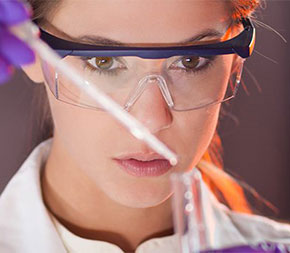
Clinical Lab Technologist At a Glance
Job Environment
Medical technologists act as supervisors for medical technicians, who perform many of the same duties in a physician’s office or lab. On the job, you’ll collect and analyze body fluids, tissue, and other substances to determine normal or abnormal findings. You’ll operate sophisticated equipment and instruments to identify the results.
Both technicians and technologists perform tests and procedures that physicians or other healthcare personnel order. However, technologists perform more complex tests and laboratory procedures than technicians do. In these roles, you’ll work side by side in doctor’s offices, clinics, diagnostic labs and research environments.
Medical laboratory technicians often wear eye shields, gloves and other gear to prevent the spread of infection and to protect themselves from solutions and reagents used in testing.
Median Annual Clinical Lab Technician Salary
Take a look at median annual salaries for clinical lab techs by state, courtesy of the U.S. Bureau of Labor Statistics’ 2023 Occupational Employment Statistics.
Career Advancement
If you enjoy working as a medical or clinical lab technician, and would like to advance and gain more responsibility and autonomy in the field, you can move into a technologist position. There, you can specialize in a variety of areas such as:
Clinical laboratory technologists, also called clinical laboratory scientists, must pass a national certification examination given by one of these professional agencies: